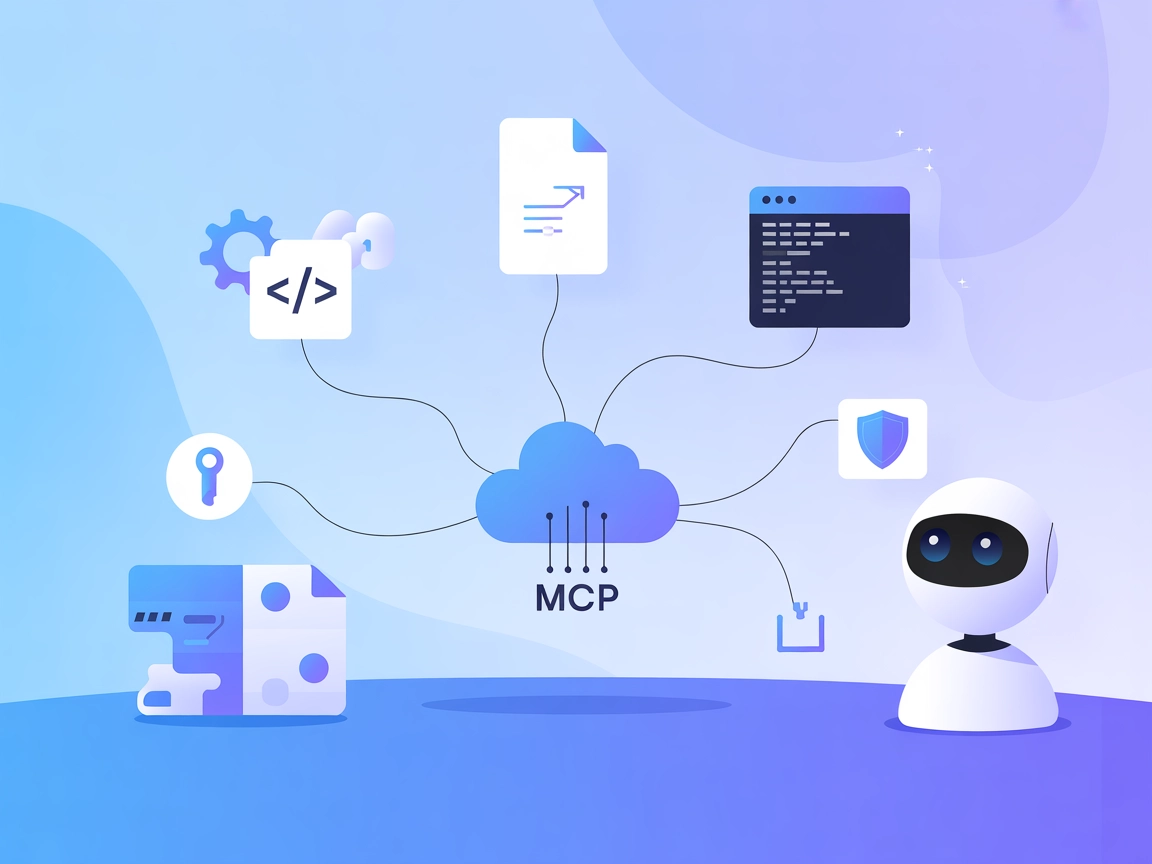
GDB MCP Server Integration
The GDB MCP Server exposes GNU Debugger’s capabilities to AI assistants and clients, enabling automated, programmatic remote debugging, breakpoint management, m...

Generate CAD parts and assemblies instantly from text with the gNucleus Text To CAD MCP Server, enabling rapid prototyping, collaborative design, and automated assembly generation.
FlowHunt provides an additional security layer between your internal systems and AI tools, giving you granular control over which tools are accessible from your MCP servers. MCP servers hosted in our infrastructure can be seamlessly integrated with FlowHunt's chatbot as well as popular AI platforms like ChatGPT, Claude, and various AI editors.
The gNucleus Text To CAD MCP server is a bridge that enables AI assistants and LLM-powered tools to generate CAD (Computer-Aided Design) models directly from natural language descriptions. By connecting to the gNucleus GenAI API, this server empowers developers and AI clients to translate text or image prompts into editable CAD parts or assemblies. This streamlines workflows for engineers, designers, and developers by allowing rapid prototyping, design generation, and collaborative modification via simple language instructions. The server exposes this functionality through the Model Context Protocol (MCP), making it accessible for integration into various development tools and AI environments, significantly enhancing the automation and efficiency of design processes.
(No explicit MCP resources are documented in the repository.)
(No Windsurf-specific setup documentation is provided in the repository.)
.env file as described in the prerequisites.claude_desktop_config.json:{
"mcpServers": {
"gnucleus": {
"command": "/ABSOLUTE/PATH/TO/YOUR/text-to-cad-mcp/.venv/bin/python",
"args": [
"/ABSOLUTE/PATH/TO/YOUR/text-to-cad-mcp/main.py"
],
"workingDirectory": "/ABSOLUTE/PATH/TO/YOUR/text-to-cad-mcp",
"env": {
"GNUCLEUS_HOST": "genai.gnucleus.ai",
"GNUCLEUS_API_KEY": "YOUR_API_KEY_HERE"
}
}
}
}
{
"mcpServers": {
"gnucleus": {
"command": "python",
"args": [
"/ABSOLUTE/PATH/TO/YOUR/text-to-cad-mcp/main.py"
],
"workingDirectory": "/ABSOLUTE/PATH/TO/YOUR/text-to-cad-mcp",
"env": {
"GNUCLEUS_HOST": "genai.gnucleus.ai",
"GNUCLEUS_API_KEY": "YOUR_API_KEY_HERE"
}
}
}
}
env section of your configuration. Example:"env": {
"GNUCLEUS_HOST": "genai.gnucleus.ai",
"GNUCLEUS_API_KEY": "YOUR_API_KEY_HERE"
}
(No Cursor-specific setup documentation is provided in the repository.)
(No Cline-specific setup documentation is provided in the repository.)
Using MCP in FlowHunt
To integrate MCP servers into your FlowHunt workflow, start by adding the MCP component to your flow and connecting it to your AI agent:

Click on the MCP component to open the configuration panel. In the system MCP configuration section, insert your MCP server details using this JSON format:
{
"gnucleus": {
"transport": "streamable_http",
"url": "https://yourmcpserver.example/pathtothemcp/url"
}
}
Once configured, the AI agent is now able to use this MCP as a tool with access to all its functions and capabilities. Remember to change "gnucleus" to whatever the actual name of your MCP server is and replace the URL with your own MCP server URL.
| Section | Availability | Details/Notes |
|---|---|---|
| Overview | ✅ | Clear, concise description present |
| List of Prompts | ✅ | Text-to-CAD/Assembly prompt patterns described; not formal templates |
| List of Resources | ⛔ | No resource definitions found in repo |
| List of Tools | ✅ | text_to_cad(input: str) documented |
| Securing API Keys | ✅ | API key usage and example in env config |
| Sampling Support (less important in evaluation) | ⛔ | No mention of sampling support |
Based on the available documentation, the gNucleus Text To CAD MCP server scores well for practical utility and clarity, but lacks resource definitions and some advanced MCP features. It is highly usable for its core purpose, but not fully featured for all MCP scenarios.
| Has a LICENSE | ✅ (MIT) |
|---|---|
| Has at least one tool | ✅ |
| Number of Forks | 0 |
| Number of Stars | 4 |
Rating:
I would rate this MCP server a 6/10. It is robust for its main goal (text-to-CAD generation) and is ready for integration, but is missing some advanced MCP features (resources, roots, sampling support) and setup guides for some platforms.
It’s a server that enables AI tools to generate editable CAD models directly from natural language descriptions by connecting to the gNucleus GenAI API. This is ideal for rapid prototyping and collaborative design.
You can describe CAD parts or assemblies using natural language, such as 'draw a block in CAD' or 'generate a tapered roller bearing.' The server interprets these and creates corresponding CAD models.
It offers the `text_to_cad(input: str)` tool, which generates a CAD model from your prompt, along with parameters, a description, and a viewable 3D model link (valid for 24 hours).
Store your API key in the `env` section of your MCP server config or in a `.env` file. Never hard-code secrets in your source code.
Use cases include rapid CAD prototyping, collaborative design iteration, automated assembly generation, interactive engineering education, and multilingual CAD model creation.
Add the MCP component to your FlowHunt flow, and configure it with your gNucleus MCP server info. This lets your AI agent use CAD generation tools during automation.
Empower your AI workflows with natural language CAD generation. Start using the gNucleus Text To CAD MCP Server in FlowHunt for faster, smarter design automation.

The GDB MCP Server exposes GNU Debugger’s capabilities to AI assistants and clients, enabling automated, programmatic remote debugging, breakpoint management, m...

The Model Context Protocol (MCP) Server bridges AI assistants with external data sources, APIs, and services, enabling streamlined integration of complex workfl...

The Markitdown MCP Server bridges AI assistants with markdown content, enabling automated documentation, content analysis, and markdown file management for enha...
Cookie Consent
We use cookies to enhance your browsing experience and analyze our traffic. See our privacy policy.